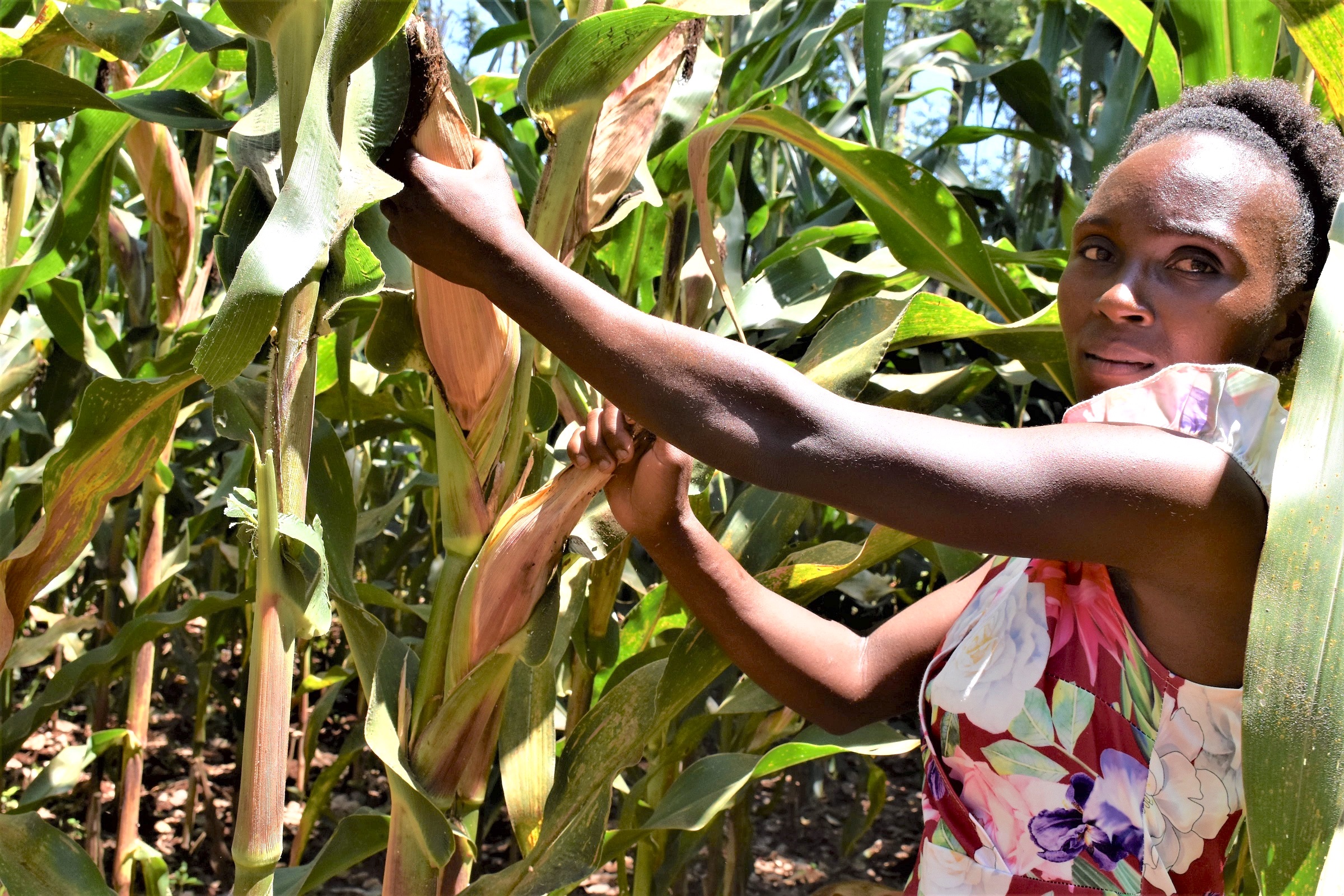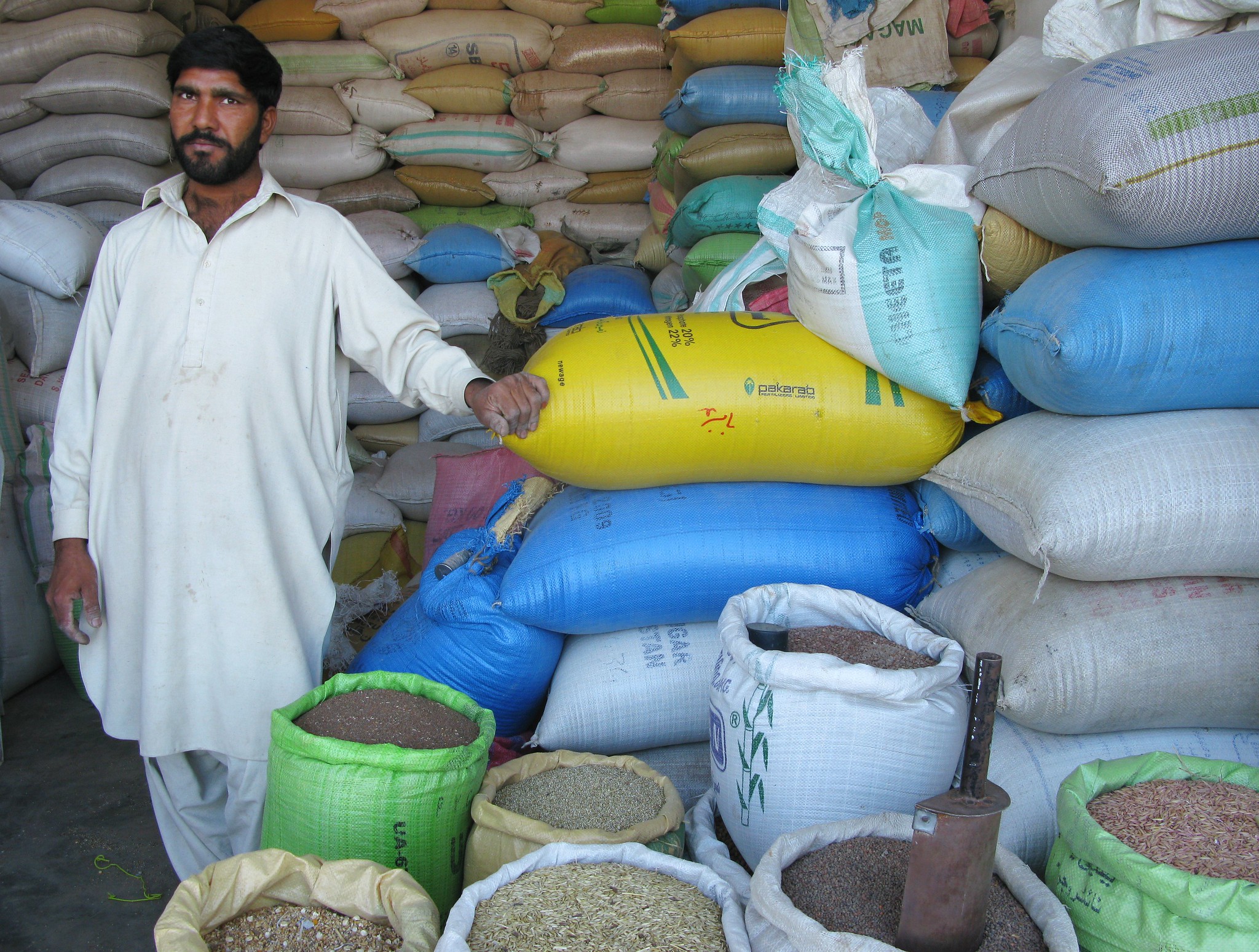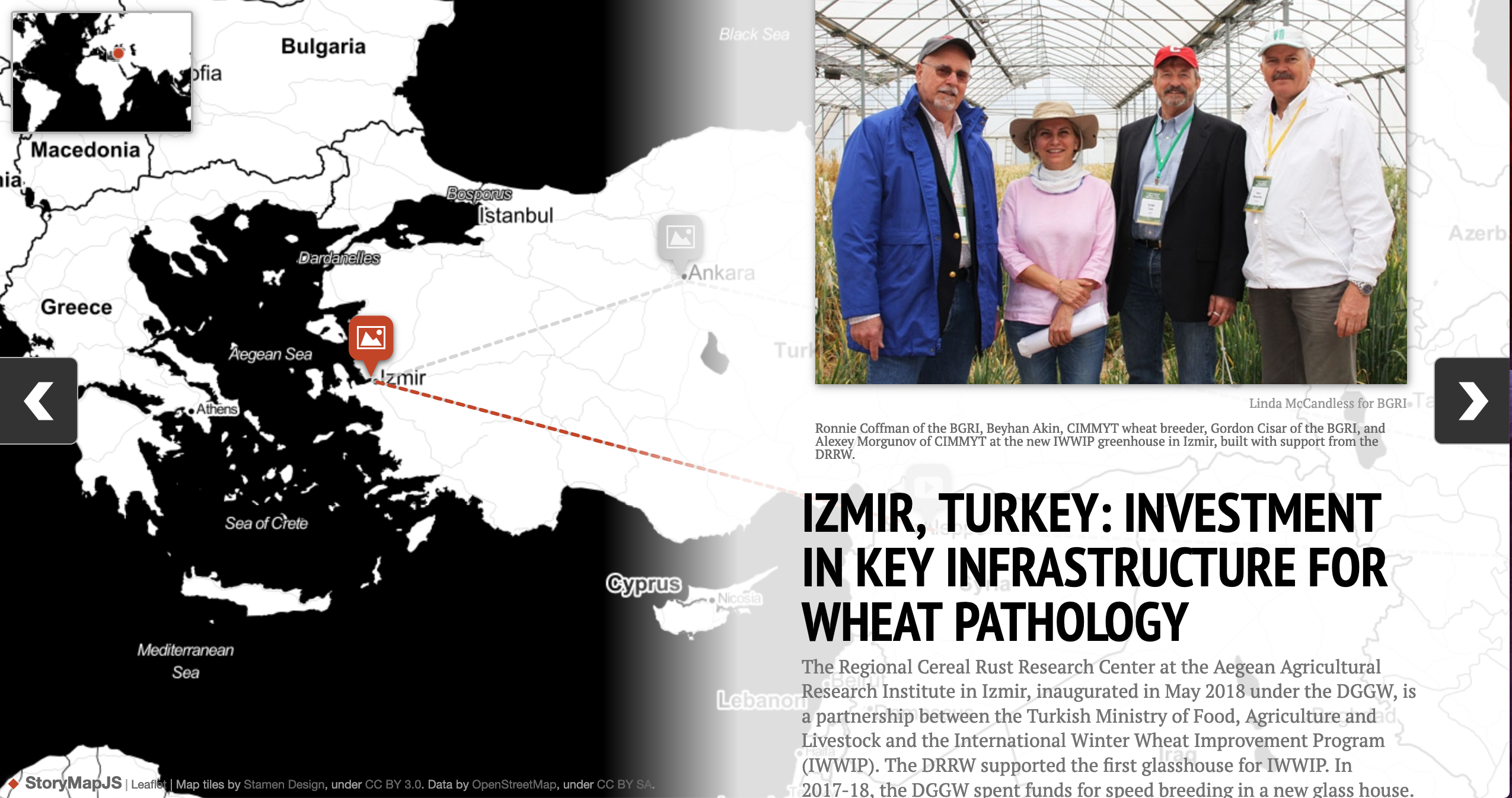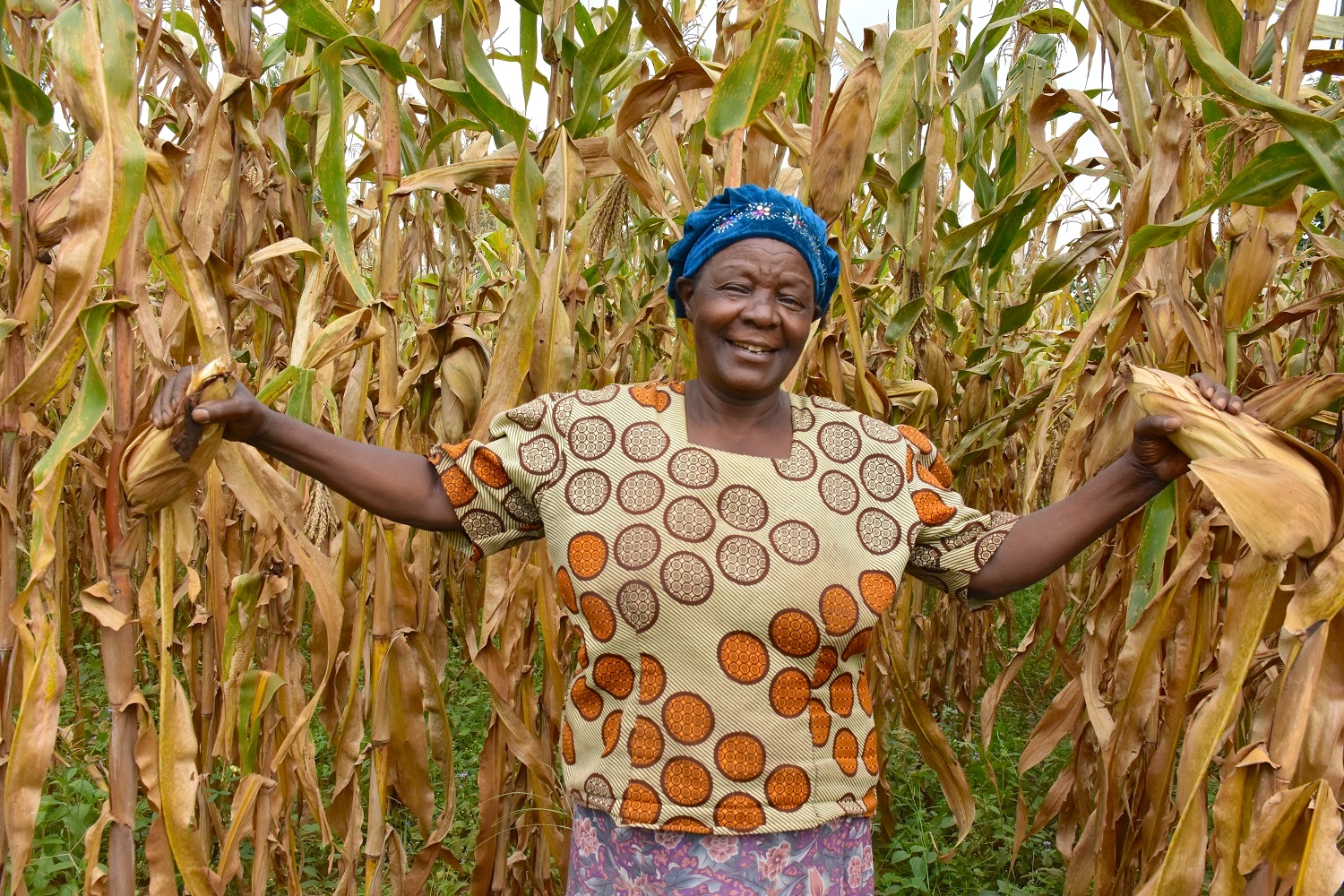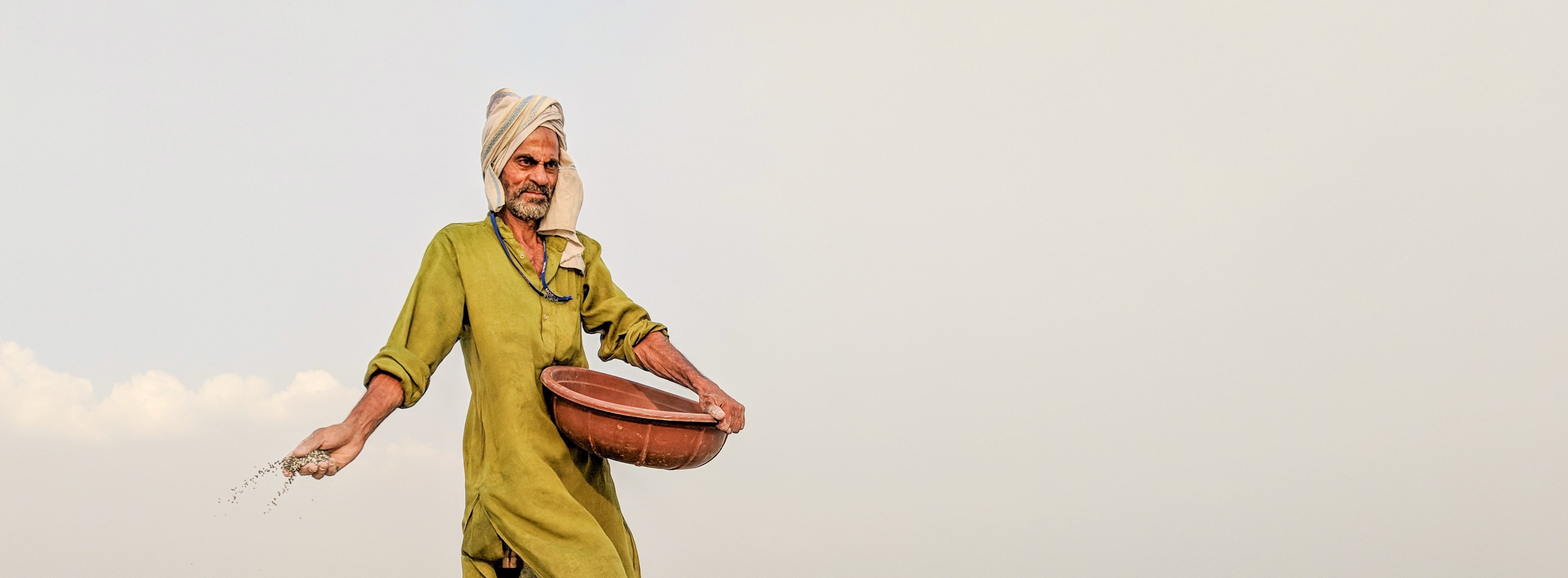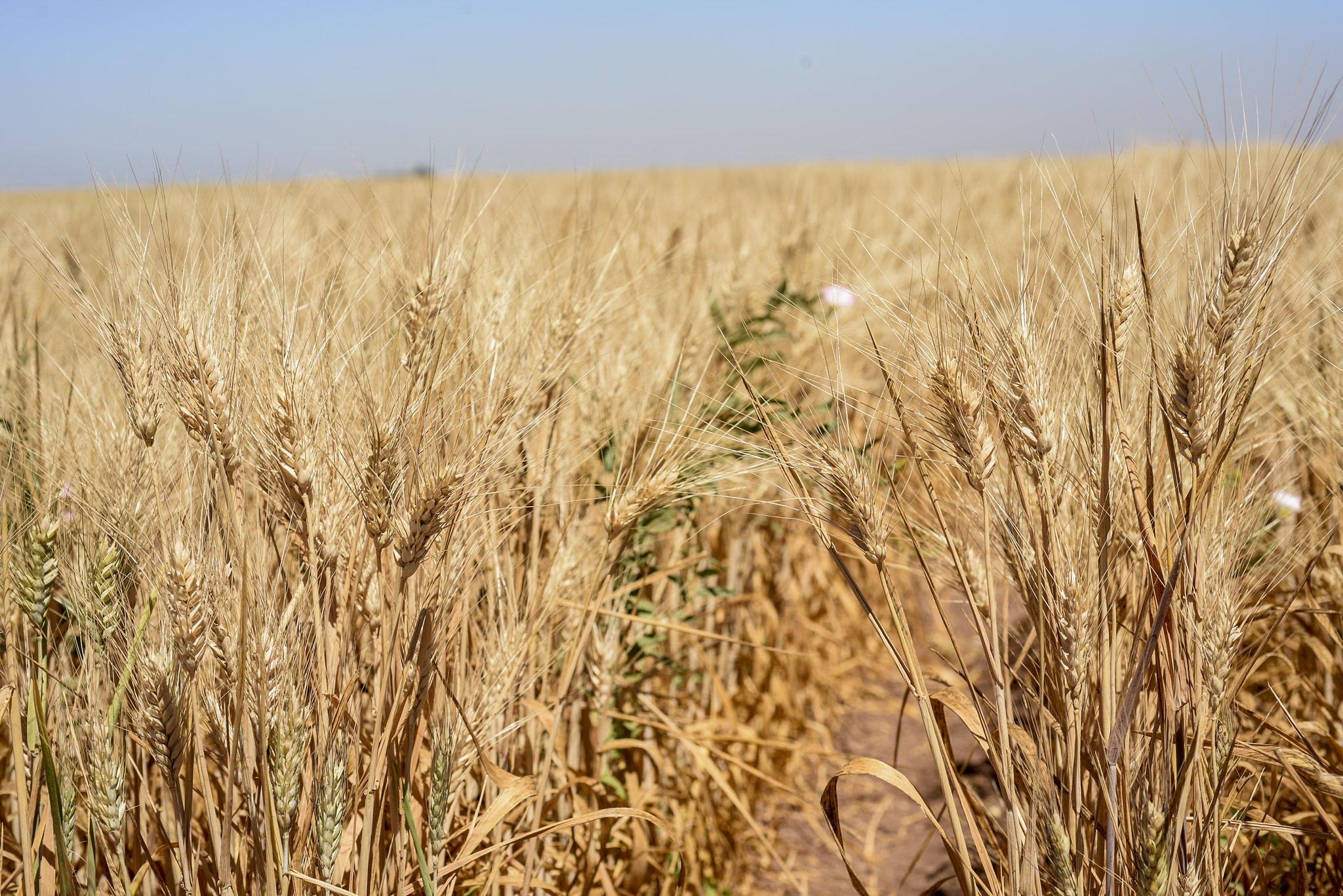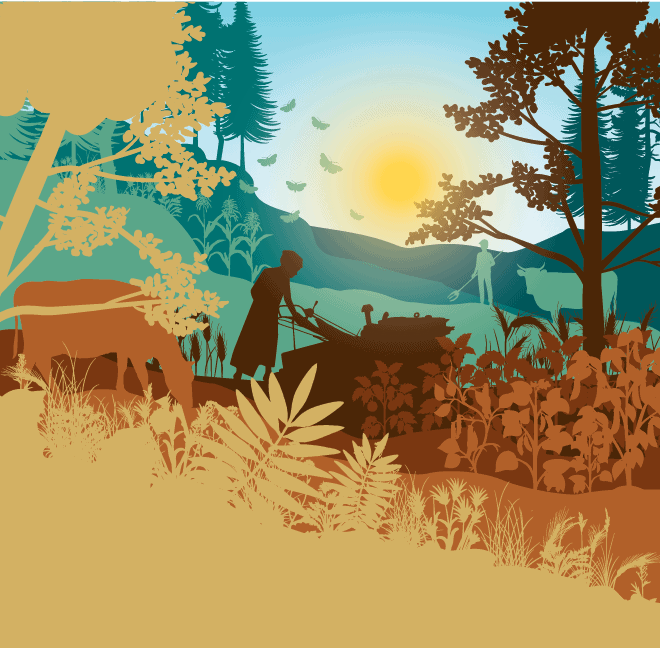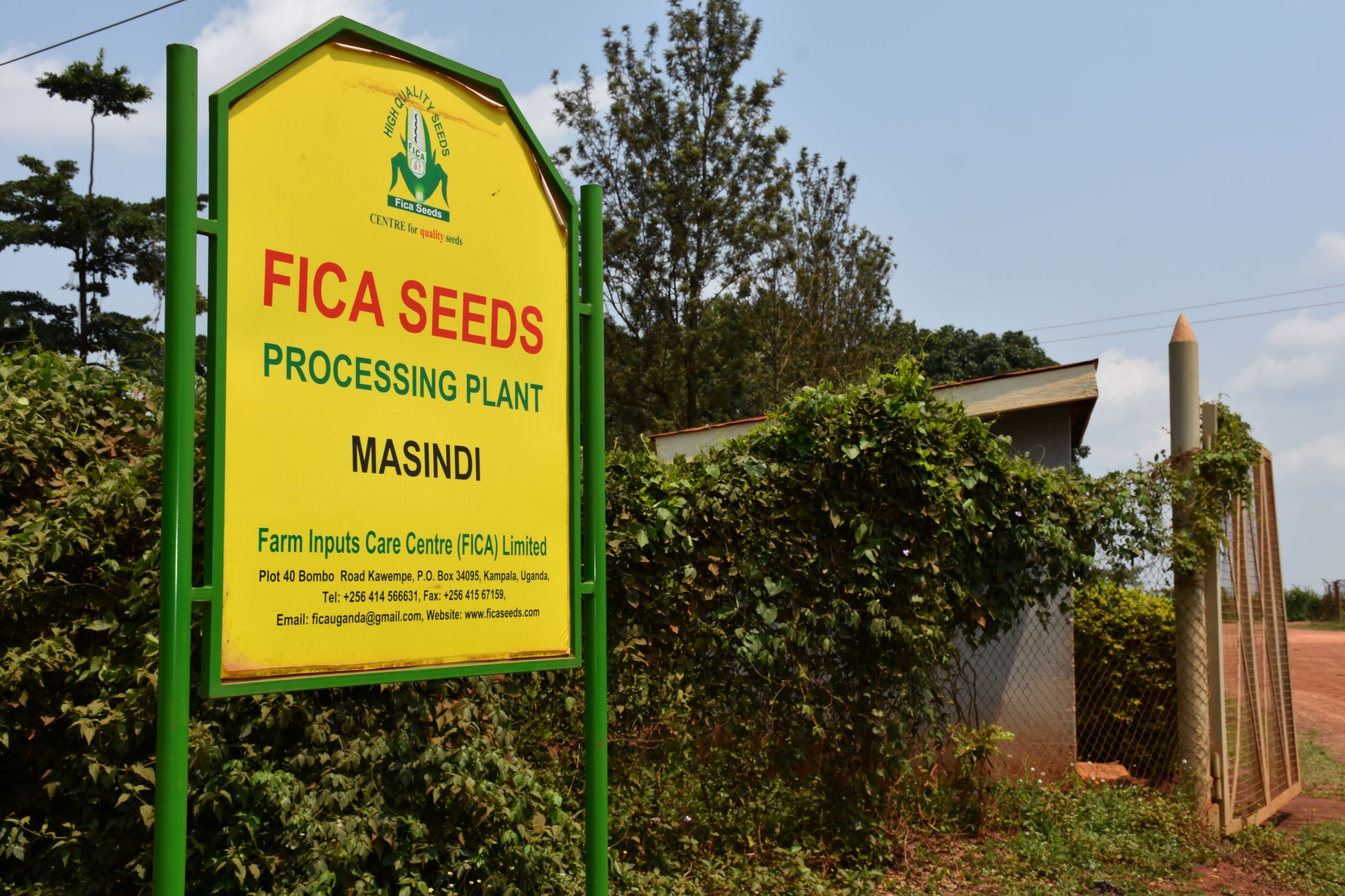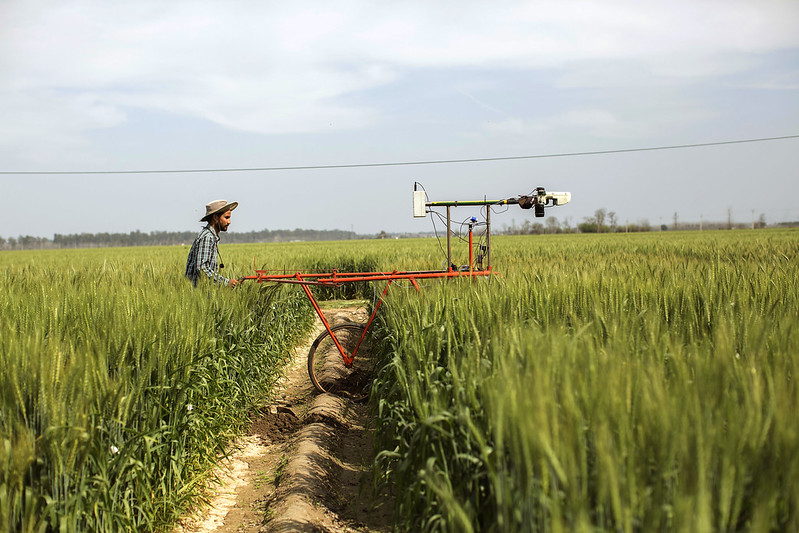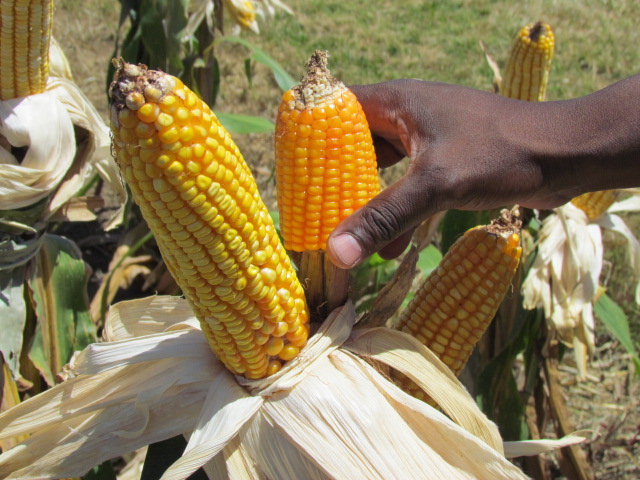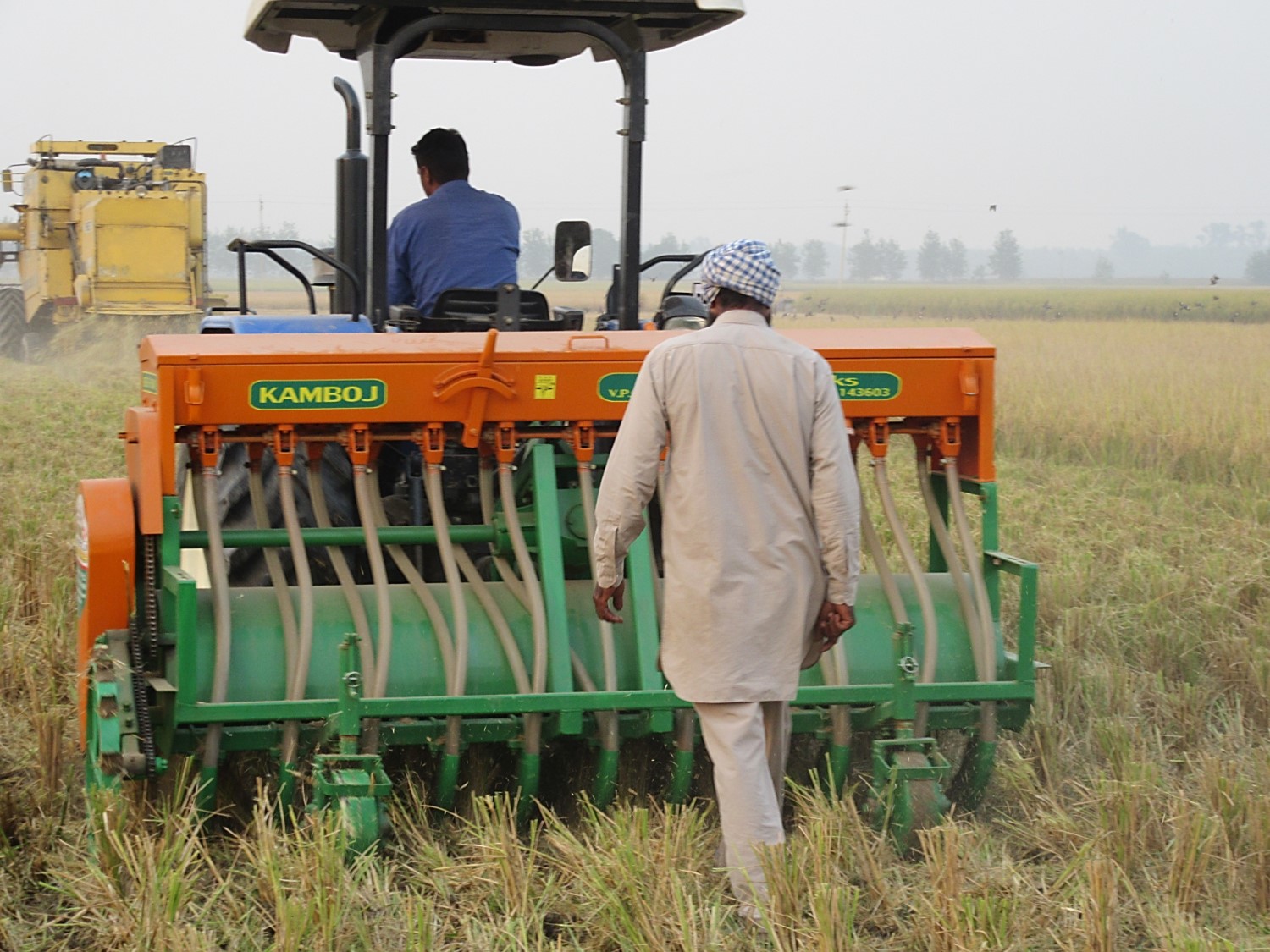Climate adaptation and mitigation
Climate change threatens to reduce global crop production, and poor people in tropical environments will be hit the hardest. More than 90% of CIMMYT’s work relates to climate change, helping farmers adapt to shocks while producing more food, and reduce emissions where possible. Innovations include new maize and wheat varieties that withstand drought, heat and pests; conservation agriculture; farming methods that save water and reduce the need for fertilizer; climate information services; and index-based insurance for farmers whose crops are damaged by bad weather. CIMMYT is an important contributor to the CGIAR Research Program on Climate Change, Agriculture and Food Security.
Drought-tolerant maize project pioneers a winning strategy for a world facing climate change
 Climate adaptation and mitigation
Climate adaptation and mitigation
As partners come together as One CGIAR to enact a bold climate-centered strategy, projects like CIMMYT and IITA’s decades-long work on climate-smart maize can help show the way forward.
Remembering the Legacy of Distinguished Wheat Breeder Sanjaya Rajaram
 Climate adaptation and mitigation
Climate adaptation and mitigation
Source: AgriBusiness Global (23 Feb 2021)
A leader of wheat breeding and later director of CIMMYT’s Global Wheat Program, Sanjaya Rajaram passed away at the age of 78.
Five big steps toward wheat self-sufficiency in Pakistan
 Climate adaptation and mitigation
Climate adaptation and mitigation
Pakistan’s goal to achieve self-sufficiency in wheat production just became more attainable with the release of five new wheat varieties.
The global network safeguarding the world’s wheat
 Climate adaptation and mitigation
Climate adaptation and mitigation
Interactive map illustrates impacts of BGRI’s 15 years of collaboration for disease- and climate-resilient wheat.
Q&A: A decade of improved and climate-smart maize through collaborative research and innovation
 Climate adaptation and mitigation
Climate adaptation and mitigation
A ten-year partnership led by CIMMYT and IITA tackles climate-induced risks in maize production, developing and deploying new climate-adaptive varieties benefiting over 8 million households in sub-Saharan Africa.
Successful Crop Innovation Is Mitigating Climate Crisis Impact in Africa
 Climate adaptation and mitigation
Climate adaptation and mitigation
Source: IPS News (17 Feb 2021)
In an op-ed, Martin Kropff, Director General of CIMMYT, discusses how higher-yielding, stress-tolerant maize varieties can not only help smallholders combat climatic variabilities and diseases, but also effectively diversify their farms.
MAIZE delivers “valuable solutions” for critical needs, according to an external review
 Climate adaptation and mitigation
Climate adaptation and mitigation
A report commissioned by the CGIAR Advisory Services assesses the program’s achievements from 2017-2019.
Digital nutrient management tool reduces emissions, improves crop yields and boosts farmers’ profits
 Climate adaptation and mitigation
Climate adaptation and mitigation
New research shows that the Nutrient Expert decision tool is better for farmers’ fields, extension services and the environment.
CIMMYT working to create climate-resilient wheat
 Capacity development
Capacity development
Source: World Grain (12 Jan 2021)
CIMMYT was awarded a $5 million grant from the Foundation for Food and Agriculture Research (FFAR) to develop climate-resilient wheat.
FFAR grant develops climate-resilient wheat
 Climate adaptation and mitigation
Climate adaptation and mitigation
CIMMYT researchers and partners are applying genomics, remote sensing and big data analysis to fortify the crop against climate-related stresses.
Unleashing the potential of plant health
 Climate adaptation and mitigation
Climate adaptation and mitigation
Webinar series from CGIAR examines the components of the crop supply chain, as part of the International Year of Plant Health.
Delivering improved maize seed against all odds
 Climate adaptation and mitigation
Climate adaptation and mitigation
Ugandan seed enterprise showcases the performance of stress-resilient maize varieties and engages agro-dealers as last mile seed merchants.
Solving South Asia’s sustainability issues will require a systems approach to crop management
 Climate adaptation and mitigation
Climate adaptation and mitigation
New research shows that a portfolio of crop management practices can boost productivity while minimizing harm to the environment.
Crop variety guide for farmers
 Capacity development
Capacity development
New manual supports informed choices for climate resilience in Zimbabwe.
“Happy Seeder” saves farmers money over burning straw, new study in India shows
 Climate adaptation and mitigation
Climate adaptation and mitigation
Authors conclude that no-till, no-burn practices can cut severe pollution in northern India and that they merit strong policy support, including enforcement of bans on burning straw.
